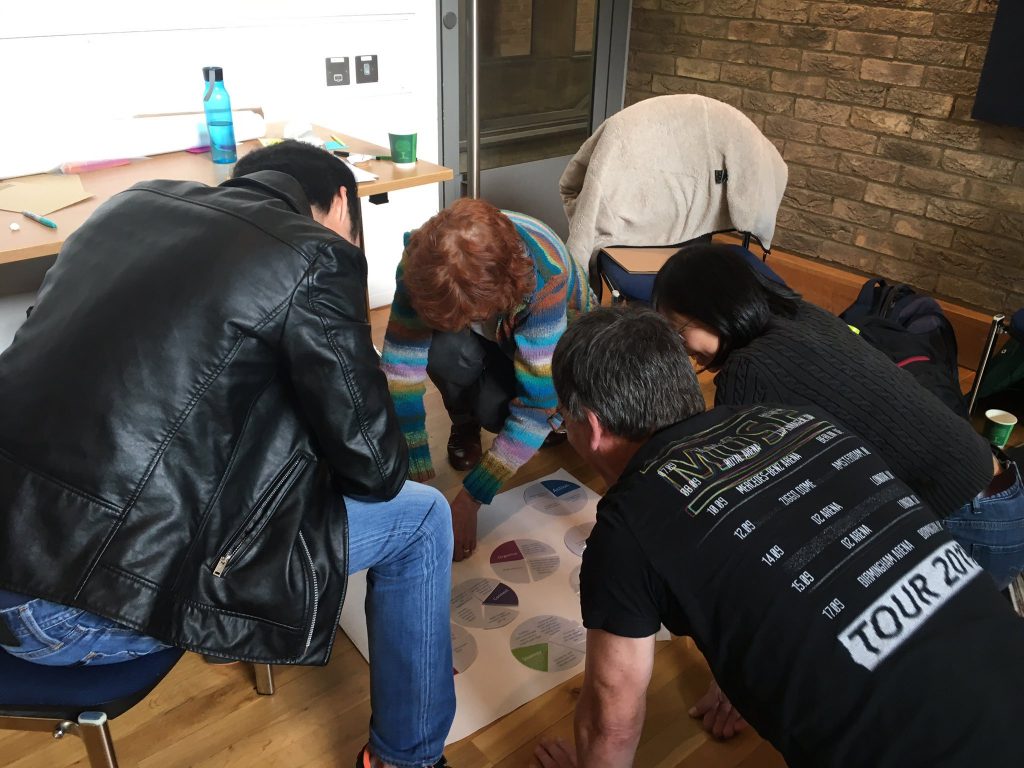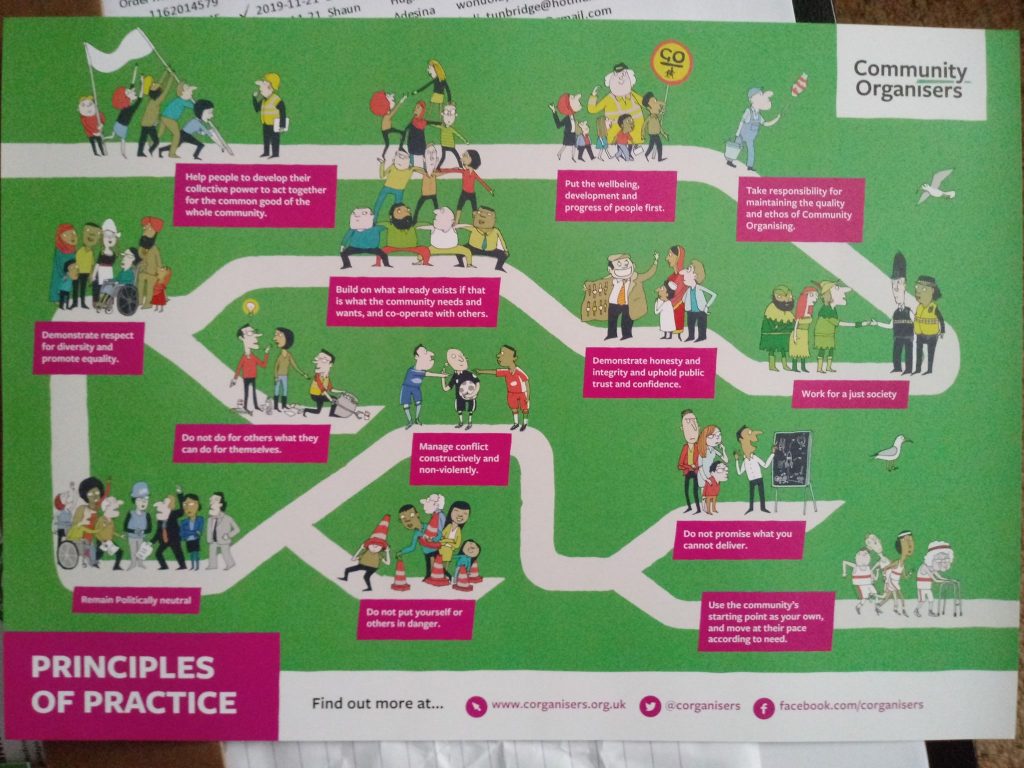I attended a meeting at Trinity College, Cambridge between 9:30 and 17:00 on Saturday 7th December to learn how best to organise a Community.
As a local town councillor (Whittlesey), I am familiar with ‘putting something back’ to the community I am a part of. Like many people, I am passionate about helping slow down or reverse the rate of Climate Change that has propelled it to be an emergency – I sometimes feel inadequate in converting what I believe into action that the whole Community can engage with. On that basis I realised that I needed help.
With some trepidation I arrived (initially at the wrong entrance), then at the location I was supposed to have reported to – the Great Gate. It was good to be greeted by Stefan, and gradually the correct number of attendees arrived. We were escorted to a very suitable room that Dr Hugh Hunt (Co-founder of Cambridge Climate Lecture Series) had arranged through the magnificent Trinity College.
After brief introductions where I was given the opportunity to declare ‘Hybrid Car’ when asked ‘What Brought Me’ there – I realise we were talking about motivation rather than the mode of transport, but it was a bit of an ice breaker.
Martha was our tutor for the day with a clear and very listenable (if that is a word) voice plainly explaining what we were going to do. It was important that we engaged with the subject matter and we were soon working in smaller groups on smaller aspects of larger projects sharing experiences and working out solutions.
Very soon we were agreeing on strategies, the need to listen closely to what people say and how to facilitate action without imposing our own thoughts and objectives. It was a relief to appreciate that it is not our responsibility to come up with all the good ideas, our role is to draw the good ideas out, examine them and help others make them work.

Understanding the stage that a group is at is just as important as understanding any other process. For example, driving a car can be broken down into many separate actions or procedures. To drive competently they all need putting together in the right order, some procedures (like changing gear) can be tricky to start with then become something ‘you just do’ – was the way I associated the new skills I was picking up.
I must mention lunchtime, at the appropriate time we were escorted to the most magnificent room (some mentioned Hogwarts as we entered). Students at Trinity College (and this is the closest I am ever likely to get to that status) are treated to an historic Hall that has entertained some truly international luminaries over many hundreds of years, and there we were under the watchful gaze of Henry VIII (Founder of Trinity College – painted by Hans Elworth). That was another highlight of the day.
We learned that any Community Organisation needs to be people led, we need to collaborate if we are to access the talents and decision makers that matter, leadership may come from within, it might emerge or it may need to be sought. We should demonstrate integrity if we are to win the hearts and minds of the community we represent, inclusiveness is important not just for it’s own sake but to be seen as being the right thing to do, finally we need to help people change and work for a just society.
These are all values that are reflected in the motivation to help develop Climate Change initiatives locally which was the over arching interest of the other twelve attendees that swapped email addresses before we concluded the last session (Thank you Shaun for sending them all out so promptly) – which was how to deal with a potential pollution situation that was based on a real event. It was rewarding to observe how well the four groups went through the process and came up with similar but slightly different solutions. There were no ‘wrong answers’ just a variety of right answers.
For the Community Organising Framework, you will need to attend a training session.

I left buzzing and felt confident that I can make a difference, and if the collective ‘We’ can all do something, the Climate Change threat can be gradually reduced allowing us to hand over a better environment than if we had not engaged with it.
